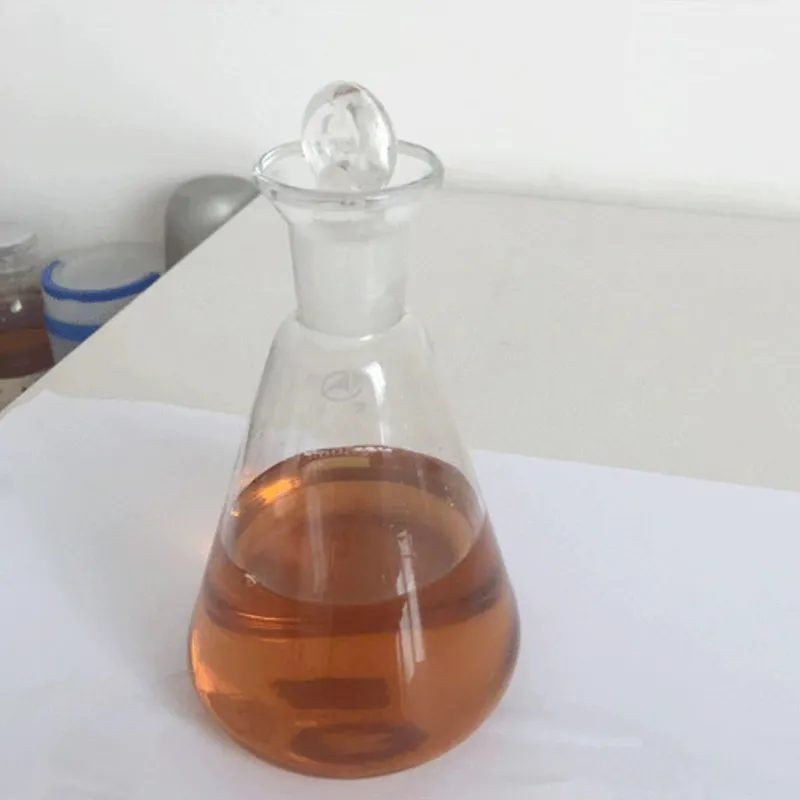
Understanding the Uses and Properties of Sodium Benzoate in Food Preservation
Sodium Benzoate An Overview
Sodium benzoate is a widely used chemical compound with the formula C7H5NaO2. It is the sodium salt of benzoic acid and is commonly employed as a food preservative, antimicrobial agent, and in various industrial applications. Its use in everyday products and its impact on health and the environment make it a topic of interest for both consumers and researchers.
Chemical Properties and Production
Sodium benzoate is a white crystalline powder that is highly soluble in water. It has a slightly sweet taste and is often used to enhance the flavor of food products. The compound is produced by neutralizing benzoic acid with sodium hydroxide or sodium bicarbonate. It can also be synthesized through chemical reactions involving benzoic acid and sodium ions.
Applications in Food Preservation
One of the primary applications of sodium benzoate is as a food preservative. It is effective against a variety of microorganisms, including bacteria, yeast, and mold, making it particularly valuable in preventing spoilage and extending shelf life. The effectiveness of sodium benzoate as a preservative depends on various factors, such as pH levels, temperature, and the type of food product being preserved.
Sodium benzoate is particularly effective in acidic environments, which is why it is commonly found in acidic foods and beverages such as salad dressings, fruit juices, and carbonated drinks. The World Health Organization (WHO) has deemed sodium benzoate safe for consumption within specified limits. However, the additive's safety is sometimes questioned, leading to ongoing research into its potential health effects.
sodium benzoate is

Potential Health Concerns
Despite its widespread use and approval by regulatory agencies, concerns have been raised regarding the safety of sodium benzoate. Some studies suggest that when combined with ascorbic acid (vitamin C), sodium benzoate can form benzene, a known carcinogen, especially when exposed to heat and light. Benzene is a harmful substance linked to various health issues, including cancer. Although the levels of benzene produced in these conditions are generally considered low and unlikely to pose significant risk, the potential for its formation has led to calls for careful examination of sodium benzoate's use in food products.
Moreover, there is ongoing research into the potential effects of sodium benzoate consumption on hyperactivity and behavioral issues in children. Some studies have suggested a link between artificial food additives, including sodium benzoate, and increased hyperactivity in susceptible children. This has prompted some parents to seek out “clean” or “natural” food products that do not contain synthetic additives.
Environmental Impact
In addition to health concerns, the environmental impact of sodium benzoate should not be overlooked. While it is biodegradable and generally considered environmentally friendly, the production and disposal processes can have negative effects if not managed properly. Wastewater containing sodium benzoate can lead to the formation of toxic by-products in certain conditions, highlighting the importance of responsible management practices in its industrial applications.
Conclusion
Sodium benzoate is a versatile and widely used compound that plays a crucial role in food preservation and various industrial applications. While regulatory bodies have deemed it safe for use within established limits, ongoing research into its potential health effects continues to fuel debate about its safety, particularly in combination with other substances. Additionally, the environmental implications of its production and use warrant careful consideration. As consumer awareness grows, the demand for transparency in food ingredients and manufacturing practices is likely to influence the future of sodium benzoate in the food industry. Ultimately, understanding both the benefits and risks associated with sodium benzoate is essential for consumers, manufacturers, and researchers alike.
-
Why Glacial Acetic Acid Food Grade Is Essential in FlavorNewsMay.26,2025
-
Surging Export Growth of Food Additives in ChinaNewsMay.26,2025
-
How Ammonium Nitrate Fertilizer Boosts Crop YieldsNewsMay.26,2025
-
How 1,2,3-Benzotriazole Shields Plastics from UV DegradationNewsMay.26,2025
-
Cyanide in Gold Mining: Protecting People and the PlanetNewsMay.26,2025
-
Aluminum Hydroxide in Modern Sunscreen FormulationsNewsMay.26,2025
-
Understanding Synthetic Rubber OptionsNewsApr.27,2025
Hebei Tenger Chemical Technology Co., Ltd. focuses on the chemical industry and is committed to the export service of chemical raw materials.
-

view more DiethanolisopropanolamineIn the ever-growing field of chemical solutions, diethanolisopropanolamine (DEIPA) stands out as a versatile and important compound. Due to its unique chemical structure and properties, DEIPA is of interest to various industries including construction, personal care, and agriculture. -

view more TriisopropanolamineTriisopropanolamine (TIPA) alkanol amine substance, is a kind of alcohol amine compound with amino and alcohol hydroxyl, and because of its molecules contains both amino and hydroxyl. -

view more Tetramethyl Thiuram DisulfideTetramethyl thiuram disulfide, also known as TMTD, is a white to light-yellow powder with a distinct sulfur-like odor. It is soluble in organic solvents such as benzene, acetone, and ethyl acetate, making it highly versatile for use in different formulations. TMTD is known for its excellent vulcanization acceleration properties, which makes it a key ingredient in the production of rubber products. Additionally, it acts as an effective fungicide and bactericide, making it valuable in agricultural applications. Its high purity and stability ensure consistent performance, making it a preferred choice for manufacturers across various industries.











